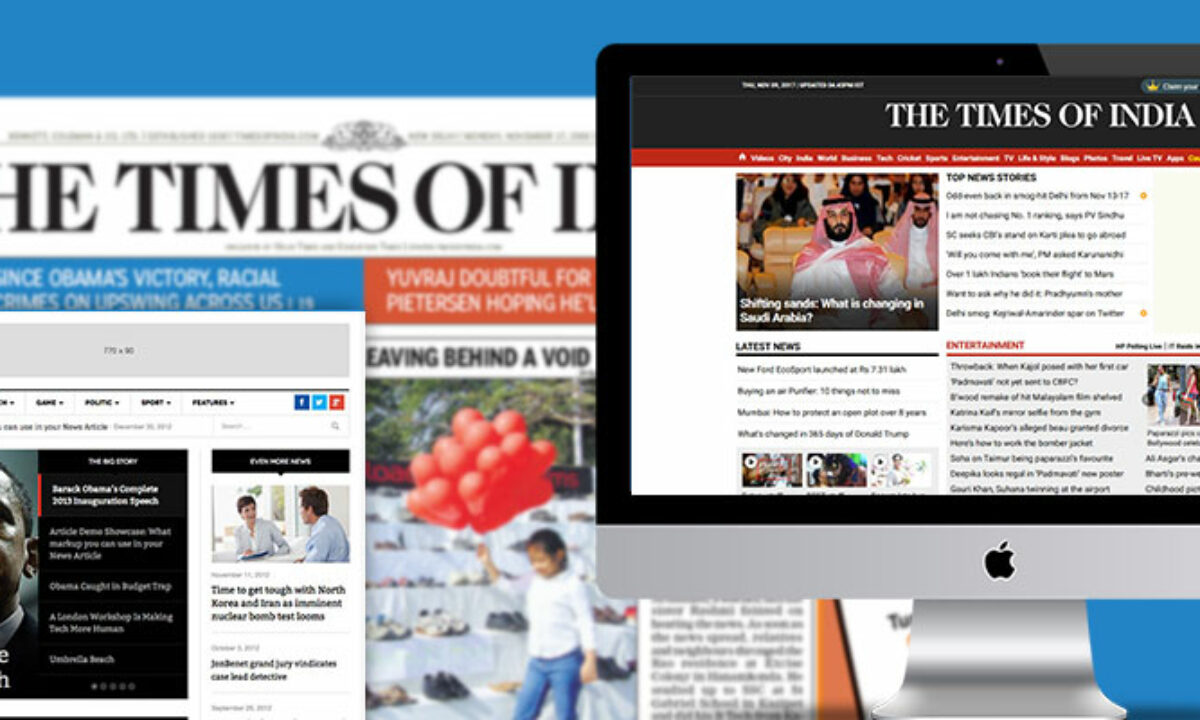6 Easy Facts About International News Online Described
The Buzz on International News Online
Table of ContentsInternational News Online Things To Know Before You BuyThe 6-Minute Rule for International News OnlineGetting My International News Online To WorkAn Unbiased View of International News Online
About a third of U.S. grownups (31%) say they routinely get news from Facebook. While Twitter is just utilized by concerning three-in-ten united state grownups (27%), about half of its users (53%) turn to the site to frequently get information there. And a quarter of U.S. adults on a regular basis get news from YouTube, while smaller shares get information from Instagram (13%), TikTok (10%) or Reddit (8%).The United State, South Korea and the Netherlands are specifically most likely to hold this view. As a different evaluation shows, the former 2 likewise stick out for being the countries where individuals are more than likely to report problems in between individuals who support various political parties. While regarded political division in the Netherlands is rather reduced, it, also, stands apart: In between 2021 and 2022, the share that said there were conflicts boosted by 23 portion factors amongst the highest year-on-year changes apparent in the survey.
South Korea, Singapore, Italy and Japan are one of the most likely to see social media making individuals more forgiving. On the flip side, the Netherlands and Hungary stick out as the two countries where a plurality claims the web and social media sites have actually made people much less approving of people with racial or spiritual distinctions.
A Biased View of International News Online
More youthful individuals are more probable than older ones in a lot of countries to state that social media has actually boosted resistance. International News Online. This holds true, for instance, in copyright, where 54% of grownups under 30 claim social media sites has added to individuals being even more approving of individuals from various ethnic groups, religions and races, compared with a 3rd of those ages 50 and older
Results of an analysis of the 11-country survey did discover that individuals who utilized mobile phones and social media sites were more probable to regularly engage with individuals from diverse backgrounds though the inquiry did not inquire about acceptance, almost communications. The publics in these emerging economic climates were additionally somewhat separated when it came to their opinions on exactly how social media sites has brought about individuals being basically approving of those with various point of views.
This is even more than the 23% who say it has made them much more civil though a typical of 26% see little effect regardless. In the U.S., the Netherlands and Australia, a majority sees the internet and social networks making individuals less civil. About seven-in-ten Americans say this. Singapore stands apart as the only country where around half see these innovations raising civility.
People with greater degrees of education tend to see less civility many thanks to social media sites about those with lower degrees of education. In many places surveyed, those that think social media has actually made people more split politically, compared with those who state it has actually had no effect on divisions, are likewise a lot more most likely to say social media has made people much less civil in how they speak about national politics.
Not known Details About International News Online
Self-confidence in social networks's YOURURL.com effect on transforming individuals's minds is greatest in South Korea, Singapore and Malaysia. Germans, Belgians, Israelis and French grownups are more skeptical, with no even more than regarding fifty percent seeing social media as reliable for transforming people's minds on sociopolitical problems. Sights on social networks as a means to bring the attention of elected authorities to certain problems are similar.

In a similar way, more youthful adults are likewise a lot more most likely to think about social networks a reliable way for altering individuals's minds on problems. The distinction is biggest in Poland and Germany, where younger grownups are 24 points much more most likely than their older counterparts to see social media this method. There are fewer differences in between younger and older adults when it pertains to social media's effectiveness for guiding chosen officials' attention and influencing plan decisions.
Not known Facts About International News Online
The distinctions are greatest in Israel in both situations. Israeli social media individuals are 47 points most likely than non-users to state social media sites works for increasing recognition and 38 factors a lot more likely to consider it effective for transforming people's minds on sociopolitical problems. Various sights between social media sites customers and non-users are less usual when it pertains to social media as a reliable way for bringing elected officials' attention to concerns or influencing plan choices.

It was down in the UK and Brazil however up a few other countries, such as Greece, Bulgaria, and Poland. This year, for the very first time, we asked regarding the different manner ins which people stay clear of the news and found that around half of avoiders (53%) were trying to do so in a broad-brush or routine method for instance, by turning off the radio when the information began, or by scrolling past the information in social media.
You claimed that you attempt to actively stay clear of news.